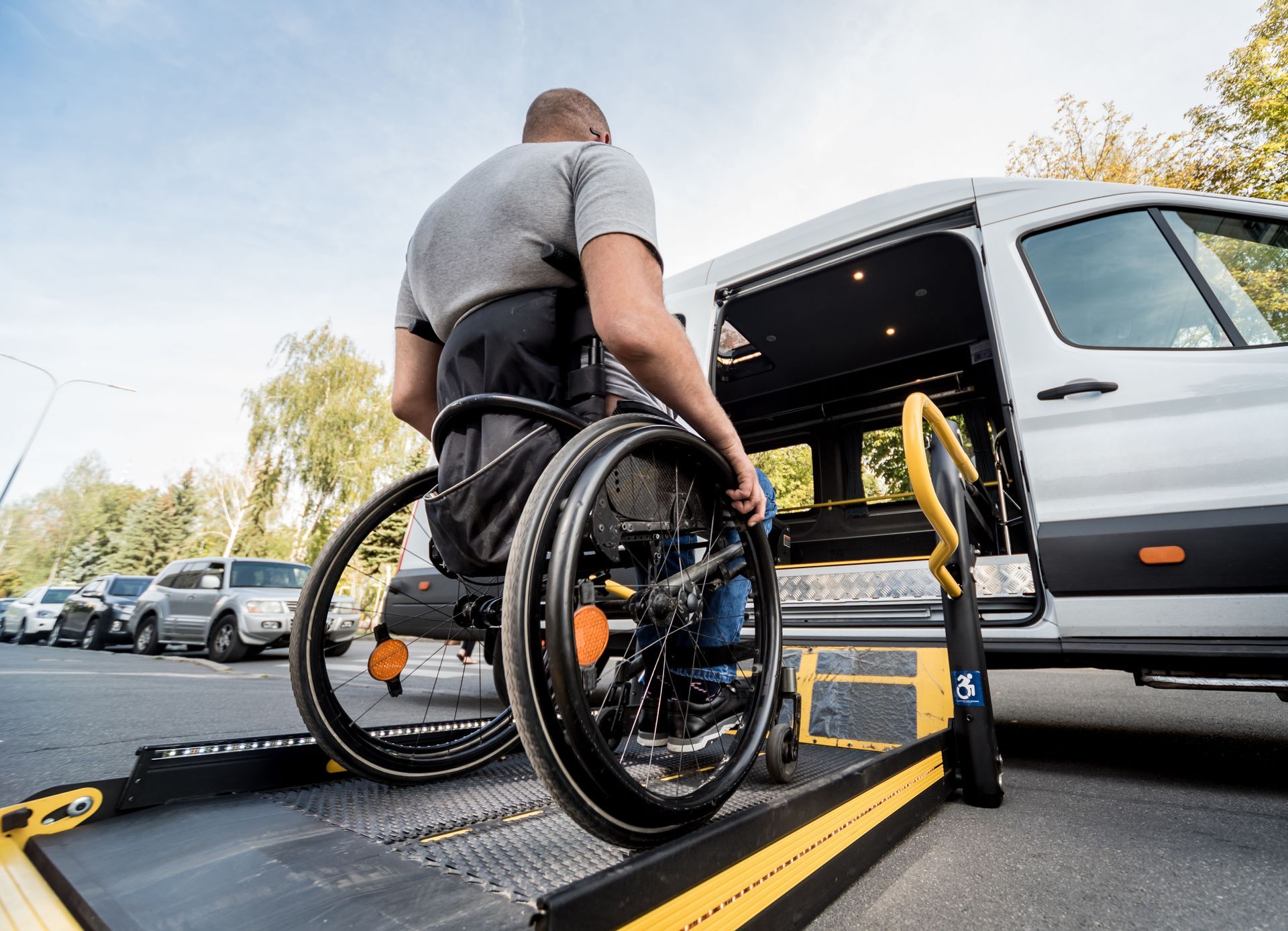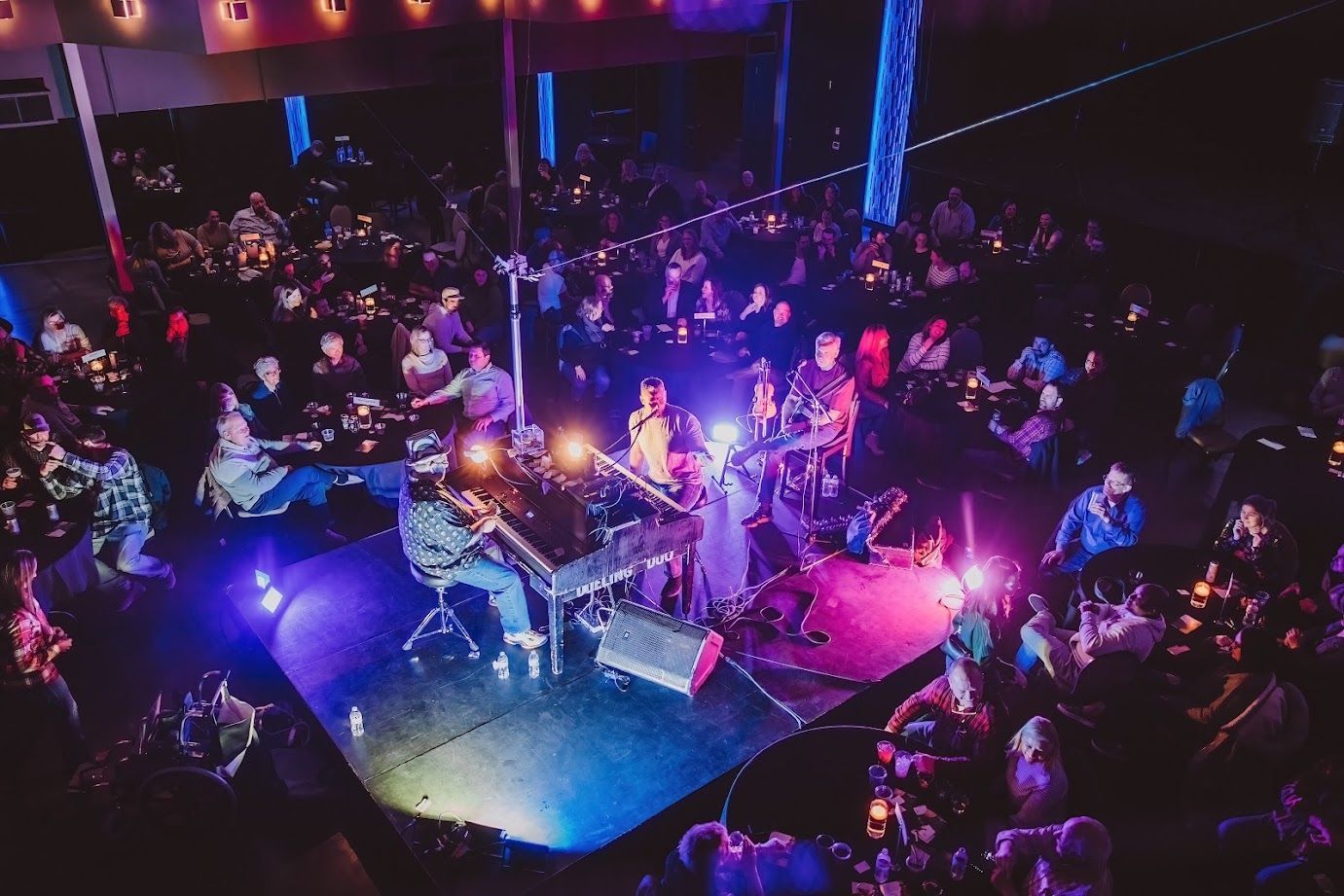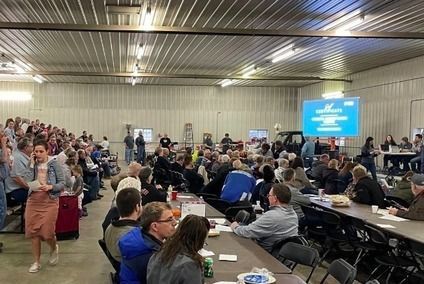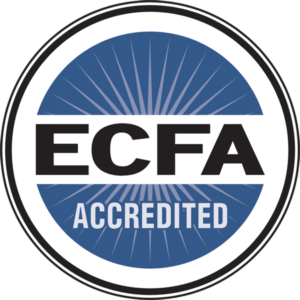Volunteers Making A Difference
Linda Feikema has been a prolific quilter for decades, but the 75-year-old also brings her sewing hands to a more difficult task. Many mornings, she finds herself sewing stitches into thick Naugahyde using an industrial sewing machine, creating the covers for the adjustable pads on pediatric wheelchairs. “It’s all donated to us, but we get all types of Naugahyde,” Feikema said. “Some of it’s very thin; some of it’s very thick, which is really hard to work with.”
Wheelchairs are produced by the thousands each year by Hope Haven International Ministries, a division of Hope Haven. Founded in 1964, Hope Haven is a Rock Valley-based nonprofit organization that provides services to people with physical and intellectual disabilities living in more than 15 communities in the tristate region. Along with rehabilitating used wheelchairs for adults, the ministry has a number of regional sites that either manufacture the frames for pediatric wheelchairs or produce their adjustable seating systems, which can accommodate a wide variety of body shapes and needs.
Designated “the KidChair,” the ministry’s pediatric wheelchair was designed by engineering students at Dordt University in Sioux Center in 1996, then tweaked according to input from rehabilitation engineers and specialists. It’s created in two sizes and easily adapts to a variety of children’s shapes, sizes and positioning needs. The adjustable pads are crucial for creating the right fit for the children living around the world who eventually are seated in the chairs.
“Those pieces are all made from scratch — it’s a lot of sewing. The sewing is very important,” Terry Meyer said. Meyer is chief financial officer at Hope Haven. The donated material comes in varying thicknesses and colors, and it is the thickness that is of particular concern to the sewers. The thicker the material, the harder it is to sew, particularly in the places where folded seams create double or triple the number of layers that must be held neatly with stitches. “Whatever we get, we use. And some of its thicker, and some of its thinner,” Feikema said. “We can’t pin anything, so we use clips to hold things together while we sew. Our machines are industrial machines, so that’s the good part, because they can go over heavy seams.”
For one of the more complex pieces in the seating system, a T-shaped piece that serves as a head rest, Velcro must be stitched into the back to accommodate the removal or addition of padding when needed. “When I get to the last part, I have to sew over six layers, and two of those layers are Velcro,” Feikema said. “Those machines are just super good for that.” In the ministry’s history, it has delivered more than 137,600 wheelchairs to 109 countries.
The beginning
“It began in 1991, when four Hope Haven board members were in the Dominican Republic doing some missionary work,” Meyer said. “They saw a need — there were individuals who were crawling on the street, and they needed mobility.” The board members returned to the United States, and they raised the question at the board’s next meeting. “What’s our job as Hope Haven, an organization who supports people with disabilities?” Meyer said. “What’s our job in supporting these people?” Three years later, the ministry delivered 15 refurbished wheelchairs to the Dominican Republic. “That’s where it began in 1994 — by refurbishing old wheelchairs,” Meyer said.
For people with disabilities in developing countries, accessing a well-fitting wheelchair — or any wheelchair at all — is a significant hurdle. “We have easy access to it in our country, but according to the World Health Organization, there’s something like 50 to 70 million people who need some form of mobility in the world,” Meyer said. “So, there is a very large need.”
Sometimes, wheelchair recipients have never had access to a wheelchair, and they have spent their lives essentially immobile, staring at ceilings or watching the world go by from their position on the ground. Others have made use of wheelchairs that were broken, or that fit poorly, causing further problems for the person operating the chair. “Seating a person in a wheelchair incorrectly can do more harm than good,” Meyer said.
Whatever the shape of the need, volunteers like Feikema are doing their part to help. In her case, one stitch at a time.
Stitches
There are five regulars in the Orange City sewing rotation, and they are all women of retirement age, and all connected to Trinity Reformed Church in Orange City. “Although Jerry does some sewing, too,” Feikema said.
Like Feikema, Jerry Dykstra is a regular volunteer who got connected with the international ministry through its partnership with Trinity, which began in 2019. For many years, most of the seating systems for the ministry’s pediatric wheelchairs were produced by inmates at the South Dakota State Penitentiary in Sioux Falls. A shortage of prison guards led to a decline in production at the facility, however, and volunteers from Trinity stepped in to pick up the slack. “They were experiencing such a high demand for these wheelchairs that they asked churches if they would go ahead and partner with Hope Haven,” Dykstra said in a recorded interview produced for Trinity’s website. “That’s how we got started.”
The Orange City site is in the back room of a building owned by Northwestern College that formerly housed Napa Auto Parts. The site is devoted to the production of KidChair seating systems, and many days of the week, a crew of volunteers can be found cutting Naugahyde with industrial scissors, sewing covers for adjustable pads, stuffing the pads with wooden supports and padding and stapling them closed.
Feikema joined the ministry right after it established its partnership with Trinity. “There were about three or four of us there at the beginning meeting, and we decided that was something we could do,” she said. “I’m a quilter, so I’ve done a lot of sewing.”
“I could see God pushing me to do it. It was something that needed to be done, and I was good at doing it.” Sewing in Orange City typically takes place on Tuesdays and Wednesdays, from about 9 a.m. until noon, and because the small site has just two industrial sewing machines, two sewers from the rotation are assigned to each day.
Manufacturing
While women are sewing in Orange City on Tuesday morning, a complimentary process is taking place at Hope Haven in Rock Valley. “There’s five of us that come from Sioux Center on a regular basis,” said volunteer Willis Alberda. He has been showing up to help manufacture and assemble pediatric wheelchair frames since 2002.
The space, which includes an adjacent sewing area, looks like a factory in miniature. On Tuesday mornings, from 9 a.m. to noon, there are volunteers performing their assigned tasks along two snaking assembly lines. Sometimes, the volunteers are joined by clients of Hope Haven, who also volunteer their time to the ministry.
As a KidChair’s component parts move through the manufacturing and assembly process, it begins to take shape. Near the end of the process, the constellation of aluminum piping begins to cohere in skeletal form — a simple wheelchair frame, held together at its joints by custom-made pieces of hard black plastic. “They’re called ‘the KidChair,’ and they’re made from scratch,” Alberda said.
The ministry’s pediatric wheelchair comes in two sizes, one with a seat width of 12 inches and another with a width of 14. “We put out about 2,500 KidChairs a year,” Meyer said, referring to production across sites.
Distribution
Along with coordinating other distribution missions around the world, Hope Haven International Ministries sends a team of area volunteers to work with a ministry partner in Costa Rica once or twice a year. Around 200 wheelchairs are shipped to the country ahead of each team.
Feikema was a member of the team that traveled to the Central American country to distribute wheelchairs to people who needed them in January. “The people who came were anywhere from 4 years of age to 98,” Feikema said.
Costa Rica is one of 20 countries Hope Haven International Ministries sent wheelchairs to in 2022. Last year, 3,775 wheelchairs were distributed globally. “It just was so amazing to see. Once they were in the wheelchair, and they saw that it fit them and it would fit all their needs, the looks on their faces? It was just amazing,” Feikema said.
Physical Therapists and other specialists travel with ministry teams on wheelchair distribution trips to ensure that each wheelchair is tailored to the specifications of the wheelchair user. Families also are trained and given information on how to assist the new wheelchair recipient on usage and proper care of the chair.
“You hear story after story where you bring a wheelchair to an individual in a small home that’s got a dirt floor, and that person has hardly ever been out of the house,” Meyer said. “It’s bringing dignity and value. Now that person can get to work, or school.”
Meyer has accompanied teams on a number of distribution trips, most recently to Costa Rica in January of last year. He said the most moving experience he had on the trip was witnessing a mother being carried to the wheelchair distribution site by her two sons.
“She had had a stroke a year before, and had not left her bed,” Meyer said. “Her two sons lifted and carried her there. They got her out and sitting in a wheelchair, and she just bawled when they sat her in it.”
He said the next step for the ministry is to establish wheelchair manufacturing sites in the developing countries where need is the highest. “Our vision is to have more chairs being developed and made within developing countries — people with disabilities can work on chairs, too,” Meyer said. “The people here who volunteer are doing very meaningful work, but why can’t we make them there, and make it more sustainable — maybe reach more people?
“Seventy million people need a wheelchair — the demand is always going to be there.”
Article published by Aleisa Schat, N’West IA Review.
The post Volunteers Making A Difference appeared first on Hope Haven.





